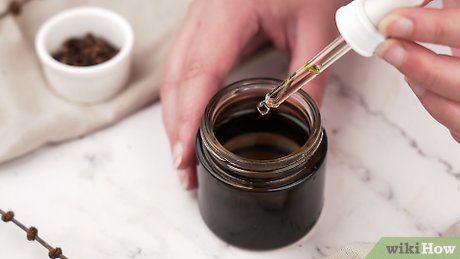Written By: Summiyah Mahmood
Cloves, with their natural pain-relieving, antibacterial, and anti-inflammatory properties, have long been revered as a powerful ally in maintaining dental health. These small but potent spices can alleviate toothaches, combat oral infections, and promote overall gum health. Incorporating cloves into your oral care routine—whether as an oil, powder, or infusion—can provide natural relief from common dental issues and support a healthier smile.
Introduction: The Rising Concern of Gum Health
Gum health is often overlooked in our daily oral care routines, yet it plays a crucial role in our overall dental well-being. Gum diseases like gingivitis and periodontitis are common problems that can lead to serious complications if left untreated. Many people experience gum pain, inflammation, and sensitivity, searching for natural remedies to alleviate these discomforts. This is where cloves, an ancient spice known for its medicinal properties, come into play. Not only are cloves effective in managing gum issues, but they also offer a natural alternative to chemical-laden oral care products.
Benefits of Cloves for Oral Health
Cloves are more than just a kitchen spice; they are a versatile natural remedy known for their effectiveness in treating various oral health problems. Understanding the benefits of cloves can help you appreciate why they are such a valuable addition to your oral care routine.
- Analgesic Properties: Clove oil contains eugenol, a natural anesthetic that helps numb and soothe toothaches and other oral discomforts. This makes it an excellent remedy for those sudden, sharp pains that can disrupt your day.
- Antibacterial Qualities: The antibacterial properties of cloves are powerful in fighting off harmful bacteria in the mouth. Regular use of cloves can help prevent bacterial growth, which is a leading cause of gum infections, bad breath, and cavities.
- Anti-inflammatory Effects: Gum inflammation is a common issue that can lead to more serious gum diseases if not addressed. Cloves’ anti-inflammatory properties help reduce swelling and irritation, promoting healthier gums.
- Breath Freshening: Bad breath is often caused by bacteria in the mouth. Cloves help neutralize these bacteria, leaving your breath fresh and your mouth feeling clean.
- Overall Dental Hygiene: Incorporating cloves into your dental routine can help maintain a balanced oral environment. They work alongside brushing and flossing to enhance your oral hygiene and protect your gums and teeth from common problems.
The Power of Cloves for Dental Health
Now that we’ve explored the benefits, let’s delve into the practical applications of cloves in your daily oral care routine.
1. Using Clove Oil to Treat Toothaches
Toothaches can be debilitating, and finding quick relief is essential. Clove oil is a time-tested remedy for easing tooth pain.
How To Apply
- Dilution: Clove oil is potent and should be diluted before use. Mix a few drops of clove oil with a carrier oil, such as coconut or olive oil, to prevent irritation.
- Application: Soak a cotton ball in the diluted oil and apply it directly to the affected tooth or gums. The eugenol in clove oil will begin to numb the area, providing relief from pain.
- Rinsing: After a few minutes, rinse your mouth with warm water to remove any residual oil.
- Frequency: Repeat this process two to three times a day until the pain subsides. However, if the pain persists, it is advisable to consult a dentist.

2. Mouthwash with Clove Oil
A clove oil mouthwash is an excellent way to maintain oral hygiene and combat bad breath.
How To Apply
- Preparation: Add one or two drops of clove oil to a glass of warm water. This solution is powerful enough to kill bacteria without being too harsh on the sensitive tissues in your mouth.
- Use: Swish the solution around your mouth for about 30 seconds, ensuring it reaches all areas. Spit it out afterward, and remember not to swallow the mixture.
- Frequency: Use this mouthwash once or twice daily for best results. Regular use can help maintain fresh breath and reduce the risk of oral infections.

3. Toothpaste with Clove Powder
For those who prefer a more direct application, clove powder can be a great addition to your brushing routine.
How To Apply
- Preparation: Mix a small amount of clove powder with water or your regular toothpaste to form a paste. The mixture should be smooth enough to apply to your toothbrush.
- Use: Brush your teeth with this mixture for a few minutes, focusing on areas that are particularly sensitive or prone to pain. The mechanical action of brushing combined with the therapeutic properties of cloves will help remove plaque and bacteria.
- Frequency: Incorporate this into your brushing routine no more than two or three times per week to avoid irritation. Overuse can lead to sensitivity, so moderation is key.

4. Rinsing with Clove Extract
Clove extract is another effective way to benefit from the spice’s medicinal properties.
How To Apply
- Preparation: Add a teaspoon of whole cloves to a cup of boiling water and let it steep for 10-15 minutes. This process extracts the beneficial compounds from the cloves.
- Use: Once the mixture has cooled, strain it to remove the cloves and use the liquid as a mouthwash. This rinse can help soothe sore gums and freshen breath.
- Frequency: Rinse with this clove-infused water once or twice daily. Regular use can help maintain gum health and reduce inflammation.

5. Oral Health Benefits of Clove Tea
Drinking clove tea is a soothing way to benefit from cloves’ properties internally.
How To Apply
- Preparation: Steep a few whole cloves in boiling water to make clove tea. Allow it to cool slightly before drinking.
- Use: You can drink the tea or use it as a mouthwash. The tea not only helps with oral health but can also aid digestion and boost your immune system.
- Frequency: Enjoy one or two cups of clove tea daily. This simple addition to your diet can have significant benefits for your overall health, including your oral health.

Precautions to Keep in Mind
While cloves offer many benefits, it’s important to use them correctly:
- Allergies: Perform a patch test to ensure you’re not allergic to cloves or clove oil. Allergic reactions can include itching, swelling, and redness.
- Consultation: If you’re nursing or have underlying oral health issues, consult your dentist or healthcare provider before using clove products. They can advise on the best practices and any potential risks.
- Sensitivity: Some people may be sensitive to clove oil; always test on a small area first. If you experience any adverse reactions, discontinue use immediately.
- Professional Advice: Cloves are a helpful remedy but are not a substitute for professional dental care. If you experience persistent discomfort or other dental problems, consult a dentist for a thorough evaluation and treatment plan.
Storage
To maintain their potency, store clove powder and clove oil in a cool, dark place, away from direct sunlight and heat. Exposure to light and heat can degrade the essential oils in cloves, reducing their effectiveness.